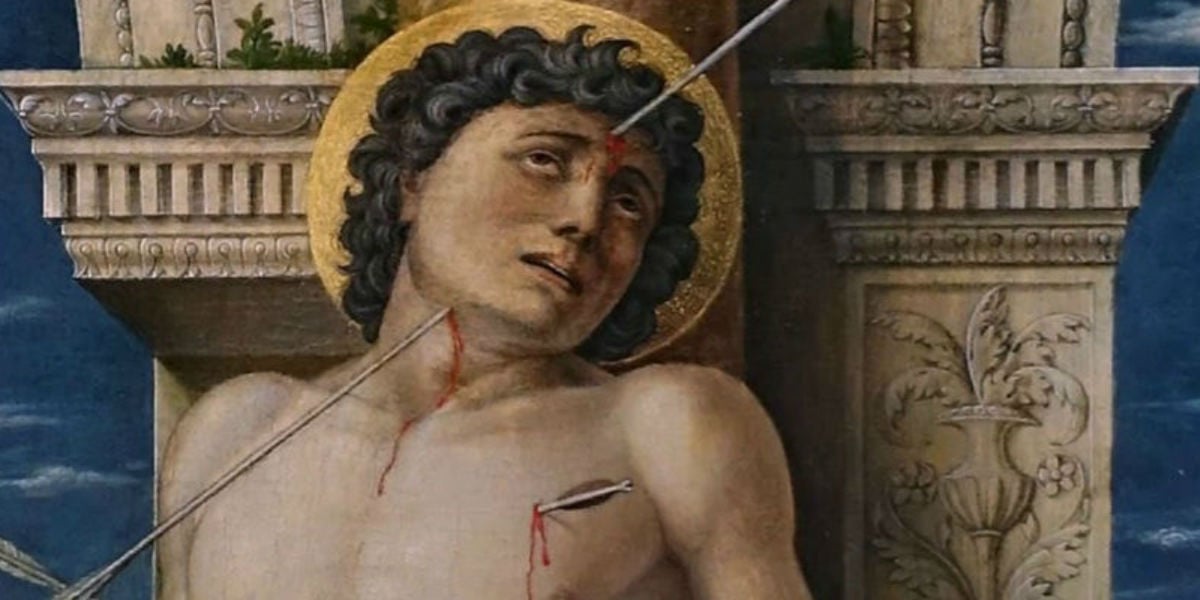Regina Caeli – Queen of Heaven, Rejoice!
The Regina Caeli, Latin for “Queen of Heaven,” is a hymn and prayer ...

St. Sebastian is is often depicted as tied to a tree and pierced by many arrows. Ambrose says Sebastian was from Milan and was venerated there during Ambrose’s episcopate in the latter part of the 4th century. It appears Sebastian died in the great persecution of Diocletian between AD 303 and 312. His feast is on January 20.
To enter the kingdom of God we must endure many tribulations. If there are many persecutions, there are many testings; where there are many crowns of victory, there are many trials of strength. It is then to your advantage if there are many persecutors; among many persecutions you may more easily find a path to victory.
Take the example of the martyr Sebastian, whose birthday in glory we celebrate today. He was a native of Milan. At a time when persecution either had ceased or had not yet begun or was of a milder kind, he realized that there was only slight, if any, opportunity for suffering. He set out for Rome, where bitter persecutions were raging because of the fervor of the Christians. There he endured suffering; there he gained his crown. he went to the city as a stranger and there established a home of undying glory. If there had been only one persecutor, he would not have gained a martyr’s crown.
The persecutors who are visible are not the only ones. There are also invisible persecutors, much greater in number. This is more serious. Like a king bent on persecution, sending orders to persecute to his many agents, and establishing different persecutors in each city or province, the devil directs his many servants in their work of persecution, whether in public or in the souls of individuals.
Of this kind of persecution Scripture says: All who wish to live a holy life in Christ Jesus suffer persecution. “All” sufffer persecution; there is no exception. Who can claim exemption if the Lord himself endured the testing of persecution? How many there are today who are secret martyrs for Christ, giving testimony to Jesus as Lord! The Apostle knew this kind of martyrdom, this faithful witnessing to Christ; he said: This is our boast, the testimony of our conscience.
This excerpt from Ambrose’s exposition of psalm 118 (Cap. 20, 43-45, 48; CSEL 62, 466-468) in the late 4th century is the earliest reference we have to the martyrdom of St. Sebastian. Sebastian was honored by a memorial day in the calendar of the Church of Milan in Ambrose’s time (late fourth century). It appears in the office of readings for the Memorial of St. Sebastian on January 20.
For more great resources on Christian Martyrdom and Martyrs, see the SAINTS & MARTYRS SECTION of the Crossroads Initiative Library.
Banner/featured image of the martyrdom of Saint Sebastian by Andrea Mantegna. Public domain.
No Comments
Sorry, the comment form is closed at this time.